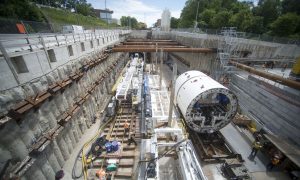The Food and Agriculture Organization of the United Nations (FAO) brought a critical message to the 2024 UN Climate Change Conference (COP29) in Baku, Azerbaijan.
The organization called for increased investment in agrifood systems saying it’s essential in addressing the climate crisis.
Over the two weeks of the international meeting and through events, initiatives and several publications, FAO emphasised that agrifood systems hold the solutions to tackling major interlinked challenges facing people and the planet, including climate change, biodiversity loss, land degradation, food insecurity, and poverty.
“The Paris Agreement and the Sustainable Development Goals are beyond reach without agrifood systems transformation”, underscored FAO Director-General QU Dongyu, the head of the FAO delegation to COP29.
The Finance COP
This COP, dubbed the “climate finance COP,” saw nations grappling with the establishment of a new global climate finance target (NCQG) to replace the expiring $100 billion goal. The final outcome acknowledged the need for vastly increased investments even if it did not lock in the full investments that will likely be needed. Aligning with this, FAO’s presence and inputs at COP29 focused not just on the quantity of finance, but also on where that finance needs to be directed to have the greatest climate impact.
Over a series of high-level events and bilateral meetings with world leaders and UN representatives, QU Dongyu and FAO experts called for increased investment in agrifood systems transformation, emphasizing the need for these systems to be prioritized in multilateral environmental agreements and fully integrated into national planning processes.
During the World Leaders Summit, FAO Director-General QU Dongyu was a prominent voice, advocating for the importance of investing in agrifood systems in addressing climate change.
At an event where panelists discussed the importance of Green Climate Fund (GCF) investments to support adaptation in vulnerable and fragile contexts, Qu stressed the urgent need for increased financing and investment. He highlighted examples of recently approved GCF projects in Iraq and Somalia led by FAO, emphasizing the need to support fragile and conflict-affected countries where the impacts of climate change are most severe.
In a High-level Party event, Qu highlighted the alarming rise in global hunger, exacerbated by conflict, climate change, and economic crises, and called for greater investment in adaptation and resilience-building in these vulnerable regions. He urged countries to integrate agrifood systems into their national climate plans and prioritize them in multilateral environmental agreements, ensuring that Nationally Determined Contributions (NDCs) reflect the full potential of climate action in this sector.
In support of the Director General’s messaging, FAO highlighted The triple gap in finance for agrifood systems, a new FAO report produced in collaboration with the ClimateShot Investor Coalition. The report revealed a significant funding gap in the sector, requiring $1.1 trillion annually to align with climate goals. This figure dwarfs current investment levels and highlights the need for increased financing to transition to sustainable and resilient agrifood systems.
Similarly, a complementary FAO analysis on climate-related development finance to agrifood systems revealed an increase in climate-related development finance allocated to these systems in 2022, reaching $29 billion. While this marks a recovery from previous years, the report explains that current finance levels are still insufficient to drive the necessary transformation of the sector for climate resilience and sustainable development.
Elevating agrifood systems on the agenda
FAO highlighted the urgent need to scale up the implementation and uptake of agrifood system solutions by enabling policies, innovation, and technologies and ensuring these solutions reach smallholder farmers and producers.
In this context, the Organization worked closely with the COP29 Presidency and other member countries to prioritize agrifood systems in their action agenda. This included a comprehensive program on November 19th, designated as Food, Agriculture and Water Day, and the launch of the Baku Harmoniya Climate Initiative for Farmers.
The Baku Harmoniya Climate Initiative for Farmers aims to help farmers navigate the numerous initiatives and programs dedicated to supporting climate-resilient agrifood systems transformation. The initiative will serve as an aggregator, bringing together various initiatives, coalitions, networks, and partnerships to empower farmers, villages, and rural communities, fostering collaboration and maximizing impact. FAO, the COP29 Presidency and the Ministry of Agriculture signed an agreement to carry Harmoniya forward through the FAST Partnership.
The FAST Partnership also convened at COP29. The Ministerial meeting highlighted the need for increased financial support for vulnerable farmers and emphasized the importance of collaborative initiatives like Harmoniya. The event also served as a platform for countries and organizations to announce new commitments and partnerships aimed at strengthening agrifood systems in the face of climate change.
Kaveh Zahedi, Director of the FAO Office of Climate Change, Biodiversity and Environment, moderated the high-level meeting. He expressed concerns about the “downward trajectory” of finance allocated to the food and agriculture sector. He commended FAO’s in-country support programmes such as SCALA, and the Organization’s role in supporting countries to access funds from the Global Enviromental Facility (GEF) and the GCF. Zahedi also underscored that global coordination platforms such as the FAST Partnership and Harmoniya are all geared towards supporting countries in financing and building the resilience and sustainability of their agrifood systems..
FAO will also continue to support countries in the implementation of their climate actions agreed in the COPs and the necessary just transition. This includes assisting them in implementing existing agreements through the official United Nations Framework Convention on Climate Change (UNFCCC) process and supporting national climate planning processes like Nationally Determined Contributions (NDCs) and National Adaptation Plans (NAPs). This is especially crucial as countries prepare to submit their updated NDCs, their national climate action plans, early next year.
With the operationalization of the “loss and damage” fund and final agreement on Article 6 of the Paris Agreement dealing with climate markets, FAO’s continued support will be essential for countries to ensure increased investments in agriculture and food systems that can bring climate adaptation, mitigation, sequestration solutions alongside food security.
Promoting agrifood system solutions
On Food, Agriculture and Water Day at COP29, FAO spearheaded a series of events. These included discussions on science and innovation for resilient food systems and high-level dialogues on financing agrifood system transformation and enhancing NDC ambition. FAO’s efforts underscored the need for increased investment, collaboration, and policy action to support sustainable agriculture and food security in the face of climate change.
The Food and Agriculture Pavilion, jointly hosted by FAO and CGIAR at COP29 in Baku, served as a dynamic hub for showcasing the critical role of agrifood systems in climate action. Inaugurated by FAO Director-General, the pavilion acted as a platform for knowledge exchange and collaborative action, featuring events and discussions on topics like integrating agrifood systems into NDCs and voluntary carbon markets. It also highlighted COP presidency initiatives like the FAST Partnership.
SOURCE: FAO




















